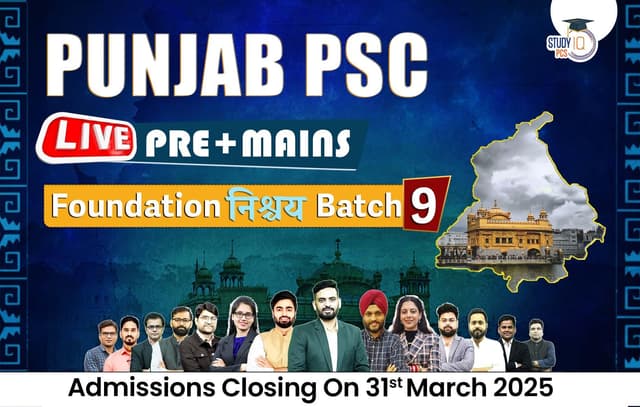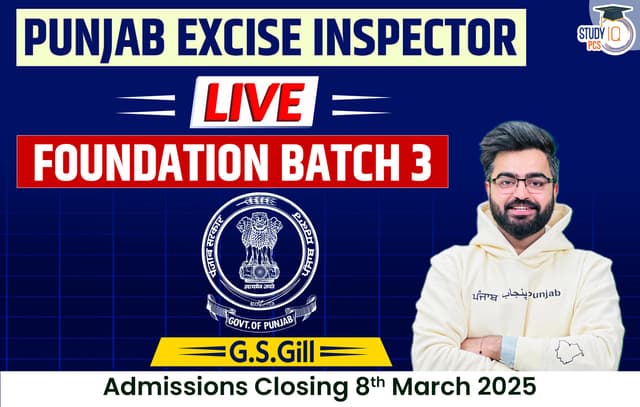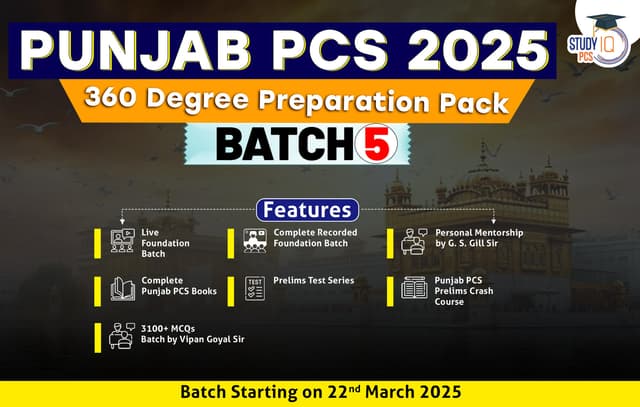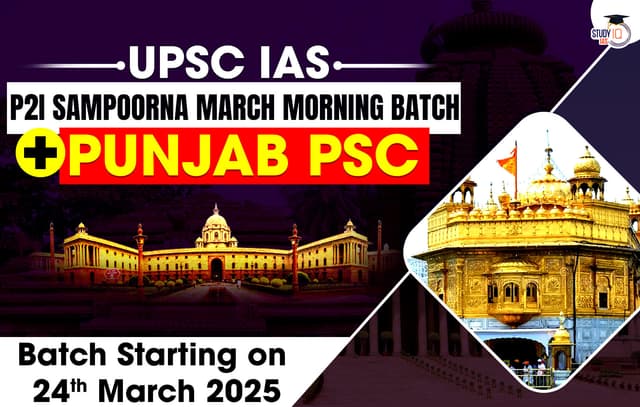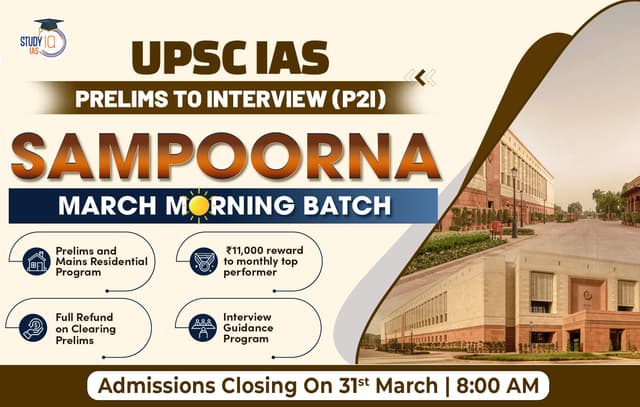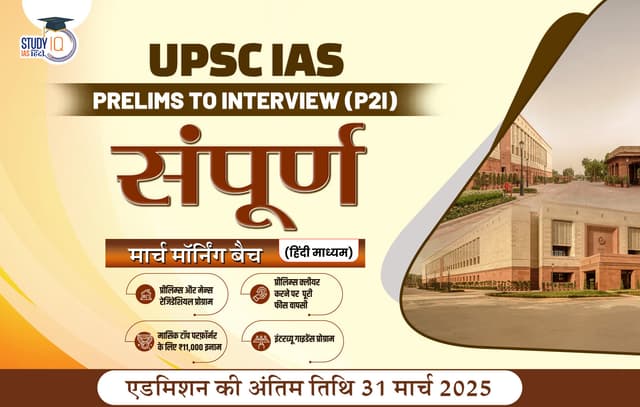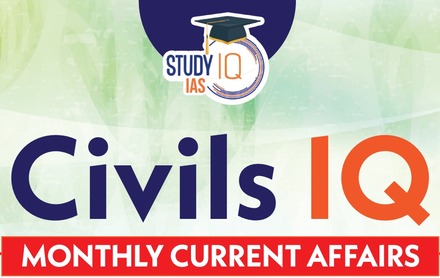Table of Contents
Punjabi literature encompasses literary works written in the Punjabi language by individuals from the historical Punjab region of India and Pakistan, including the Punjabi diaspora. Despite Punjabi being an ancient language, its literary tradition emerged relatively late.
The earliest traces of Punjabi literature are found in the writings of 11th-century yogis like Gorakhnath and Charpatinath. However, the literary tradition truly began with Fariduddin Ganjshakar (Baba Farid, 1173–1266), whose hymns and slokas were later included in the Guru Granth Sahib. Baba Farid is celebrated as the Father of Classical Punjabi Literature.
The medieval period, marked by invasions and internal conflicts, saw the evolution of Punjabi literature under Guru Nanak, who drew from earlier yogic traditions. The era of the ten Sikh Gurus, spanning 200 years, is considered the golden age of Punjabi literature, characterized by prose forms like Janamsakhi (family tree), Bachan (speech), Sakhi (historical account), Gosht (dialogues), and Paramaratha (spiritual narratives).
Punjabi Poetry
Punjabi poetry blossomed through notable figures and traditions:
- Sufi Poetry: Developed by poets like Shah Hussain (1538–1599), Sultan Bahu (1628–1691), Bulleh Shah (1680–1757), and others. Unlike Persian poets who favored ghazals, Punjabi Sufi poets composed Kafi (short poems).
- Romantic Tragedies (Qissa): Influenced by Sufi poetry, this genre produced celebrated works such as:
- Heer Ranjha by Damodar and later Waris Shah (1722–1798).
- Sohni Mahiwal by Fazal Shah.
- Mirza Sahiba by Peelu and Hafiz Barkhudar.
- Sassi Punnun by Hashim Shah.
- Puran Bhagat by Qadaryar (1802–1892).
Heroic Ballads (Vars)
Heroic ballads or Vars have a rich tradition in Punjabi literature, recounting tales of valor and historical events. Prominent works include:
- Chandi di Var by Guru Gobind Singh.
- Nadir Shah di Var by Najabat, narrating Nadir Shah’s invasion of India (1739).
- Jangnama Singhan te Firangian by Shah Mohammad, chronicling the First Anglo-Sikh War (1845–46).
Modern Punjabi Literature
The British annexation of Punjab in 1849 brought significant changes to the region’s linguistic landscape. Hindi gained prominence due to movements like Arya Samaj and Sanatan Dharma, while Punjabi in the Gurmukhi script was primarily used by Sikhs. Christian missionaries in Ludhiana introduced Gurmukhi printing in 1835. Reverend J. Newton published the first Punjabi dictionary in 1854.
Key Figures:
- Bhai Vir Singh (1872–1957): Known as the Father of Modern Punjabi Literature, he authored Rana Surat Singh and historical romances like Sundari and Satwant Kaur.
- Nanak Singh (1897–1971): Father of Punjabi Novels, he linked storytelling with social reform through works like Chitta Lahu.
- Puran Singh (1882–1932): Often called the “Tagore of Punjab,” he introduced free verse and translated Punjabi poetry into English.
- Dhani Ram Chatrik (1876–1954): A pioneer of romantic poetry, known for works like Fullan Di Tokri.
Post-Independence Era
The post-independence period is defined as the Amrita Pritam-Mohan Singh Era:
- Amrita Pritam (1919–2005): Known for highlighting themes like Partition and women’s experiences, she was the first female Punjabi writer to gain international acclaim. Her Sunehe won the Sahitya Akademi Award in 1982.
- Shiv Kumar Batalvi (1936–1973): His Luna earned the Sahitya Akademi Award in 1965.
- Avtar Singh Sandhu (Pash): Represented revolutionary themes.
- Mohan Singh (1905–1978): Brought modernism to Punjabi literature with works like Sanve Pattar.
Modern Punjabi drama also flourished through Gursharan Singh’s live performances in villages and Ishwar Nanda’s Suhag.
Diaspora and Contemporary Themes
Punjabi literature today explores diverse themes of The cross-cultural experiences of Punjabi migrants, Racial discrimination and assimilation, Women’s issues in the diaspora and Experimentation with surrealism, science fiction, and crime fiction.
Key Facts about Prominent Authors
Giani Gurmukh Singh Musafir
An Indian politician and Punjabi writer, Giani Gurmukh Singh Musafir served as the Chief Minister of Punjab from November 1, 1966, to March 8, 1967. He was honored with the Sahitya Akademi Award in 1978 for his short story collection Urvar Par and posthumously received the Padma Vibhushan.
Amrita Pritam
Amrita Pritam, a trailblazing Punjabi writer, became the first woman to win the Sahitya Akademi Award in 1956 for her long poem Sunehe. She received the Jnanpith Award in 1981 for her poetry Kagaz te Kanwas, Padma Shri in 1969, and Padma Vibhushan in 2004. Her notable works include the novel Pinjar, her autobiography Rasidi Ticket, and the iconic poem Ajj Akhaan Waris Shah Nu. She was also honored with the Sahitya Akademi Fellowship, the highest literary recognition for lifetime achievement.
Bhai Vir Singh
A poet, scholar, and theologian, Bhai Vir Singh was a key figure in the revival of Punjabi literary tradition. As part of the Singh Sabha Movement, he launched the Khalsa Tract Society in 1894, introducing a new style of literary Punjabi. He received the Sahitya Akademi Award in 1955 and the Padma Bhushan in 1956.
Khushwant Singh
One of Punjab’s most celebrated authors, Khushwant Singh wrote numerous novels, including Train to Pakistan, based on the Partition of India. His works also include The History of Sikhs. Despite returning a civilian award in 1984 in protest of the military action at the Golden Temple, he accepted the Padma Vibhushan in 2007.
Kartar Singh Duggal
Renowned for his short story collection Ik Chhit Chanan Di, Kartar Singh Duggal won the Sahitya Akademi Award in 1965. Other honors include the Soviet Land Nehru Award and Punjab Sahit Rattan Award.
Balraj Sahni
Balraj Sahni, a gifted actor and writer, contributed poems and short stories to Punjabi literature. His autobiography Meri Filmi Atmakatha remains notable. He received the Padma Shri in 1969 and the Soviet Land Nehru Award.
Sahir Ludhianvi
Born Abdul Hayee, Sahir Ludhianvi gained fame for his Urdu ghazals and lyrics for Hindi films. His first work, Talkhiyaan (1943), brought him recognition. After Partition, he settled in Bombay and rose to prominence. He was awarded the Padma Shri in 1971.
Josh Malsiyani
Josh Malsiyani, a disciple of Mirza Khan Daagh Dehlvi, was an acclaimed Urdu poet. His work Sharh-e-Deewan-e-Ghalib is a scholarly commentary on Ghalib’s poetry. He received the Padma Shri in 1971.
Balwant Gargi
A pioneer in Punjabi theatre, Balwant Gargi was the founding director of the Indian Theatre Department at Panjab University. His book Rang Manch earned him the Sahitya Akademi Award in 1962. He also received the Padma Shri (1972) and the Sangeet Natak Akademi Award (1998).
Sant Singh Sekhon
Known as the “Baba Bohar” of Punjabi literature, Sant Singh Sekhon was a playwright and fiction writer marking India’s transition to independence. He received the Padma Shri in 1987.
Sardar Anjum
An acclaimed poet and philosopher, Sardar Anjum authored 25 books and created audio recordings of his poems. His film Karzdar sought to bridge Indo-Pak relations. He was honored with the Padma Shri (1991), Padma Bhushan (2005), and Punjab Ratan Award (2001).
Gurdial Singh
Gurdial Singh began his literary career in 1957 and gained prominence with his novel Marhi Da Deeva (1964). He became the first Punjabi novelist to win the Jnanpith Award (1999) and received the Sahitya Akademi Award for Adh Chanani Raat (1975). He was conferred the Padma Shri in 1998.
Dalip Kaur Tiwana
A novelist and short-story writer, Dalip Kaur Tiwana received the Sahitya Akademi Award in 1971 for her novel Eho Hamara Jivan and the Saraswati Samman in 2001 for Katha Kaho Urvashi. She was awarded the Padma Shri (2004) and Punjabi Sahit Rattan Award (2008).
Surjit Singh Patar
A celebrated Punjabi poet, Dr. Surjit Patar translated major literary works into Punjabi, including tragedies by Federico García Lorca and poems by Pablo Neruda. He won the Sahitya Akademi Award in 1993 for Hanere Vich Sulagdi Varnmala and the Padma Shri in 2012.
Shiv Kumar Batalvi
Known as the “John Keats of Punjabi poetry,” Shiv Kumar Batalvi became the youngest recipient of the Sahitya Akademi Award in 1967 for his verse play Loona. His romantic poetry collections include Peeran Da Paraga (1960), Lajwanti (1961), and Birha Toon Sultan (1964).
Padma Awards to Punjabi Literary Figures
| Award | Recipients |
| Padma Vibhushan | Giani Gurmukh Singh Musafir (1976), Amrita Pritam (2004). |
| Padma Bhushan | Bhai Vir Singh (1956), Khushwant Singh (1974), Kartar Singh Duggal (1988), Sardar Anjum (2005). |
| Padma Shri | Balraj Sahni (1969), Amrita Pritam (1969), Sahir Ludhianvi (1971), Josh Malsiyani (1971), Balwant Gargi (1972), Prof. Sant Singh Sekhon (1987), Prof. Gurdial Singh (1998), Dr. Dalip Kaur Tiwana (2004), Dr. Surjit Singh Patar (2012). |
Prominent Authors and Their Important Works
| Author | Notable Works |
| Bhai Gurdas | Vars and Kabit Savaiyye. |
| Shah Husain | Aakh Ni Maye Aakh, Mai Ne Main Kinu Aakhan, Paakh Jinha Diyan Nigahma Hoiya. |
| Sultan Bahu | Nur-ul-Huda (Light of Guidance), Risala-e-Roohi (Book of Soul), Abyat Bahu. |
| Bulleh Shah | Ishq Di Navion Naveen Bahar, Makkeh Gaya Gal Mukdi Nahi, Masjid Dha De Mandir Dha De, Bulleya Ki Jana Main Kon. |
| Bhai Vir Singh | Rana Surat Singh (P), Sundari (N), Baba Naudh Singh (P), Bijlian de Haar, Mere Saiyan Jio (P). |
| Amrita Pritam | Aj Aakhaan Waris Shah Nu, Sunehe (SAA), Kagaz te Kanvas (BJA), Rasidi Ticket (A), Pinjar (N). |
| Giani Gurmukh Singh Musafir | Sabar de Bann, Tutte Khamb, Urvar Par (SAA). |
| Khushwant Singh | Train to Pakistan, The Company of Women, The History of Sikhs, Truth, Love & A Little Malice (A). |
| Kartar Singh Duggal | Ikk Chhit Chananh Di (S)(SAA), Dangar, Whom To Tell My Tale (A), Nanak Naam Chardi Kala (N). |
| Balraj Sahni | Mera Pakistani Safarnama, Mera Rusi Safarnama, Meri Filmi Atmakatha (A). |
| Sahir Ludhianvi | Talkhiyan, Kuliyat-e-Sahir. |
| Josh Malsiyani | Sharh-e-Deewan-e-Ghalib, Iqbal Ki Khamiyan. |
| Balwant Gargi | Rang Manch (SAA), Dhuni Di Agg, Sultan Razia, The Naked Triangle (A), Kanak Di Balli. |
| Sant Singh Sekhon | Lahu Mitti (N), Kalakar (PI). |
| Sardar Anjum | Goongi Tareef, Chalo Baant lete hain apni Sazayein. |
| Gurdial Singh | Marhi Da Deeva (BJA), Poh Futale Ton Pehlan, Parsa, Anhe Ghore da Daan (SAA). |
| Dalip Kaur Tiwana | Eho Hamara Jivan (SAA), Katha Kaho Urvashi (SS). |
| Surjit Singh Patar | Hanere Vich Sulagdi Varnmala (SAA), Lafzan Di Dargah (SS), Pathjar Di Pazeb. |
| Shiv Kumar Batalvi | Loona (SAA), Peeran Da Paraga (P), Aate Dian Chirian (P). |
Miscellaneous Facts
| Fact | Details |
| Great Grandmother of Punjabi Theatre | Norah Richards. |
| Father of Modern Punjabi Literature | Bhai Vir Singh. |
| Father of Punjabi Drama | Ishwar Chander Nanda. |
| Shakespeare of Punjab | Waris Shah, renowned for Qissa Heer Ranjha. |
| Notable Postal Stamps | Nanak Singh (1998), Balraj Sahni (2013). |
| Other Sahitya Akademi Fellowship Awardees | Jaswant Singh Kanwal, Gurbaksh Singh Preetlari. |
| Gulzar’s Achievements | Padma Bhushan (2004), Dada Saheb Phalke Award (2013). |
Punjab PCS Important Links
| Punjab PCS Important Links | ||
| Punjab PCS Notification | Punjab PCS Apply Online | Punjab PCS Syllabus |
| PPSC Eligibility Criteria | PPSC PYQ | Punjab PCS Notes |

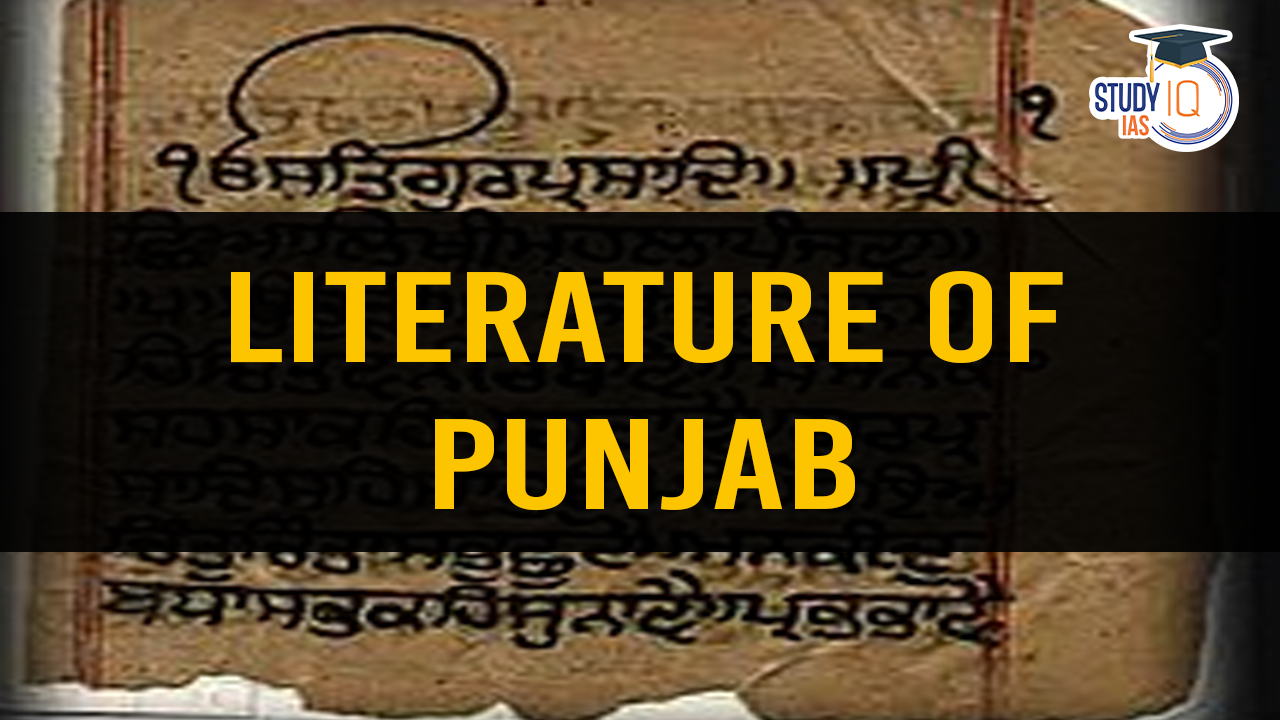
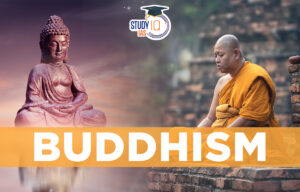 Buddhism History, Origin, Sect, Councils...
Buddhism History, Origin, Sect, Councils...
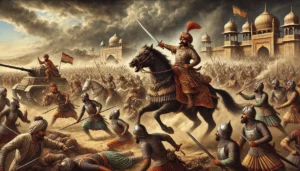 Rana Sanga: The Fearless Rajput King and...
Rana Sanga: The Fearless Rajput King and...
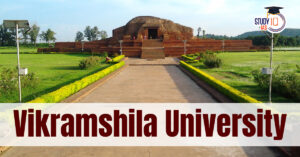 Vikramshila University Revival, Location...
Vikramshila University Revival, Location...
